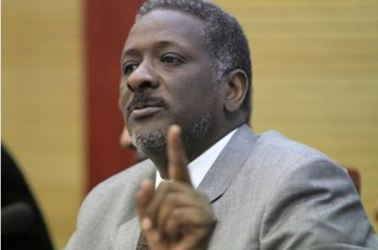Sudan finance minister drops opposition to wage hikes
December 20, 2012 (KHARTOUM) – The Sudanese finance Minister Ali Mahmood Abdel-Rasool dropped his staunch opposition to the long-standing demand by labor union that the government approves an increase in wages.

“But I don’t know much the increase in wages will be,” Abdel-Rasool stressed.
Throughout this year, the Sudanese official has pushed back against such a move saying the country cannot afford bumping pay without offsetting either through collecting additional taxes or cutting spending further, both of which he said will prove unpopular.
The country has seen its national income slashed drastically as a result of South Sudan becoming an independent state last year. The newborn nation contained three quarters of the oil reserves which provided most of Sudan’s revenue and foreign currency source.
Oil income also allowed the government to maintain a large and growing bureaucracy including security and defense sectors. It also enabled Sudan to continue paying for subsidies on food and fuel.
Feeling the pinch after the south’s secession, Khartoum partially lifted subsidies, reduced the size federal and state governments, devalued the currency and raised certain taxes and duties.
Sudan is reeling under the impact of the economic shock that resulted from the south’s secession including soaring inflation rate, rising prices and chronic shortages in foreign currency supply.
The 2013 budget projects 25.2 billion Sudanese pounds (SDG) in revenues and 35.0 billion SDG in expenses leaving a deficit of 10 billion SDG ($1.5 billion) which equals 3.4% of the country’s Gross Domestic Product (GDP).
But the head of Sudan’s labor union slammed the proposed budget describing it as “rosy” and insisted that wage increases be included.
Sudanese officials have said that without new revenue sources the wage increases risk further fueling inflation as the government will be forced to print money.
The government did not lay out a clear plan of how it intends to plug the deficit but the finance minister said that they will mainly resort to domestic borrowing.
Sudan signed a deal last September with landlocked South Sudan allowing the latter to resume exporting its oil through northern pipelines in exchange for a transit fee assessed on each barrel of oil.
However the agreement has not been implemented due to Khartoum’s insistence that Juba seals security arrangements before oil flow can be restarted.
Sudan has not included the projected transit fees in the 2013 budget but said they could amend it if things change later in the year.
In a related issue the governor of Sudan central Bank Mohamed Khair al-Zubeir pledged that 2014 would be the year when the economy will be reset and the exchange rate would be stabilized. Currently the U.S. dollar trades at 6.9 pounds in the black market in contrast to an official rate of 4.42.
(ST)
